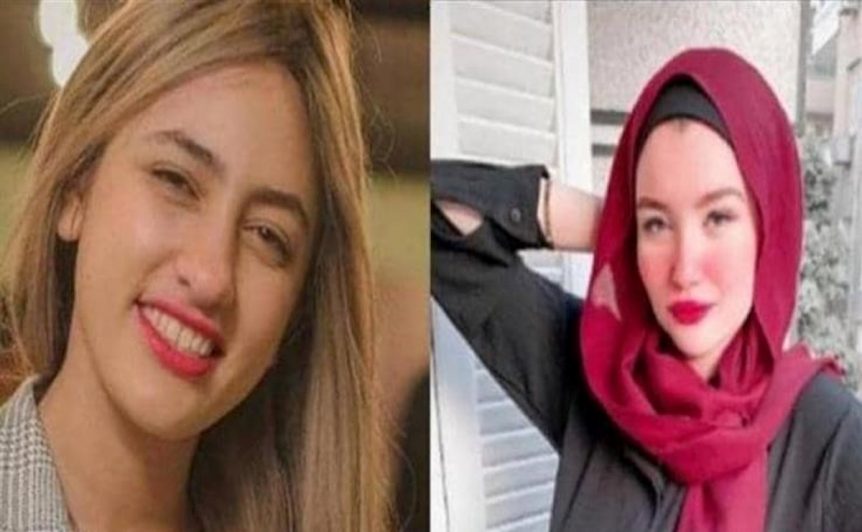Public Prosecution must fulfill its role in protecting rape survivors
The undersigned organizations denounce the Cairo Criminal Court’s verdict on 21 June 2021 against Haneen Hossam, Mawada Eladhm, and three other users of the social media platforms TikTok and Likee. The undersigned demand the revocation of the sentences and for the defendants to be released. The organizations further call on the Public Prosecution to stop imposing its moral guardianship on digital content creators and women, and to instead fulfill its professional obligations, which include investigating cases affecting survivors of rape and harassment.
Haneen Hossam was sentenced to ten years in prison, while Mawada Eladhm and the other three other defendants were sentenced to six years in prison, and each of them was fined EGP 200,000, in Case no. 4917 of 2020. The case comes as part of wider security campaign initiated by the Public Prosecution against content creators on the social media platforms TikTok and Likee. Haneen Hossam, Mawada Eladhm, and three others were arrested in Case no. 479 of 2020, on charges of infringing Egyptian family values, based upon the fundamentally flawed Law 175 of 2018 on Combating Information Technology Crimes (The Cybercrime Law).
In January 2021, the Cairo Economic Appeals Court acquitted Hossam and Eladhm on charges of infringing family values, and creating and managing private electronic accounts. Nevertheless, the Public Prosecution found itself unable to uphold or accept the principles of justice, and instead went beyond its professional scope and took action to defend nebulous “family values”, by referring the acquitted defendants to the Criminal Court in a new case, no. 4917 of 2020. The flimsy foundation of the case was a video clip deemed by the Public Prosecution as an attack on values of the Egyptian family, and as a form of incitement to indecency, and conversations on the application were considered by the prosecution to be incitement to immorality and prostitution. The prosecution also charged the women with human trafficking, claiming that they exploited two girls through the social networking site Likee, allegedly providing them with job opportunities.
Adding another layer of irrationality to the women’s sentencing, the same video clip referred to in the latest case, no. 4917, was previously presented as evidence for conviction in the first case no. 479, yet the Economic Court did not consider the video as legitimate evidence upon which to convict, and thus acquitted the defendants. Nevertheless, the vague Human Trafficking Law 64 of 2010 does not include a definition of crimes through an electronic medium, thus giving courts a wide latitude to interpret the same evidence differently and reach contradictory conclusions.
The signatory organizations consider this flawed ruling the result of a systematic security and media campaign aimed at imposing moral and societal guardianship on social media users. In just one instance of this widespread campaign, a TV host described Haneen Hossam on his show as “calling for the slave trade, legalized prostitution, and pimping,” based on the aforementioned video clip.
The Public Prosecution’s obligation is to investigate the societal defamation and stigmatization campaigns against the women, as well as the crime of leaking private photos of Eladhm. Instead of fulfilling this obligation, the prosecution has instead arrested the content creators while bringing charges against them. Adding to the abuse, the investigator demanded to a virginity test be conducted on Eladhm, constituting an egregious violation of her right to privacy and bodily integrity.
In the interests of upholding justice and the rule of law, it is imperative for the Public Prosecution to stop imposing its ill-defined perceptions of family values on citizens, to stop monitoring social media sites, and to stop punishing social media users with imprisonment. The Public Prosecution must uphold its role in conducting serious investigations into reports of rape, sexual harassment, torture and enforced disappearance, instead of ignoring these reports. The organizations also call for the suspension of Law 175 of 2018 on Combating Information Technology Crimes (the Cybercrime Law), which legitimizes violations of digital freedom of expression.
Signatory Organizations:
- The Regional Center for Rights and Liberties
- Cairo Institute for Human Rights Studies
- Egyptian Front for Human Rights
- Committee for Justice
- The Freedom Initiative
- Egyptian Initiative for Personal Rights
- Nadeem Center for Torture Victims
- The Egyptian Commission for Rights and Freedoms
- Association for Freedom of Thought and Expression
Share this Post

